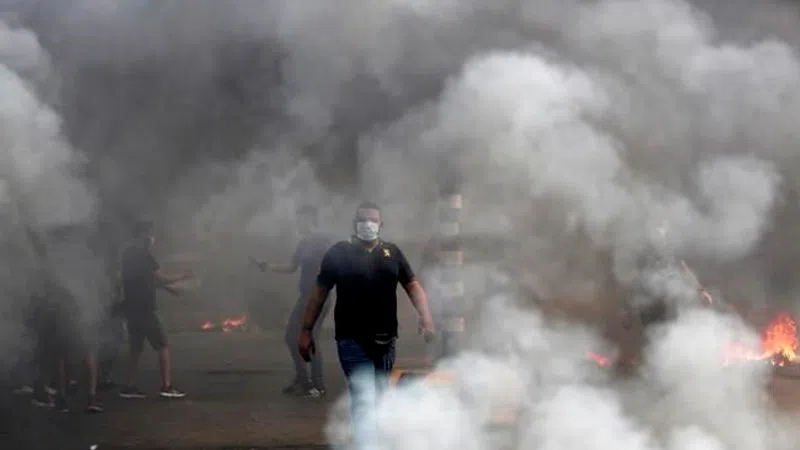
Lebanon paralyzed by nationwide protests over proposed taxes
BEIRUT — Nationwide protests paralyzed Lebanon on Friday as demonstrators blocked major roads in a second day of rallies against the government’s handling of a severe economic crisis and the entire country’s political class.
The protests were the largest since 2015 and could further destabilize a country whose economy is already on the verge of collapse and with one of the highest debt loads in the world.
The protests could plunge Lebanon into a political crisis with unpredictable repercussions for the economy, which has been in steady decline for the past few years. Some of the protesters said they would stay in the streets until the government resigns.
Time and again, the protesters shouted “Revolution!” and “The people want to bring down the regime,” echoing a refrain chanted by demonstrators during Arab Spring uprisings that swept the region in 2011.
